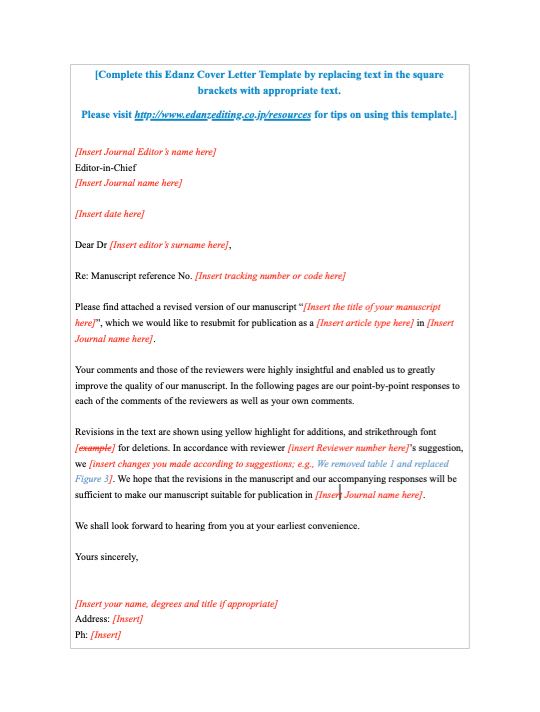Have you been asked to perform peer review for a journal? Turn it into a career opportunity! Let’s find out why you should be a peer reviewer and why doing peer reviews is great for your career.
Imagine you’ve received an invitation to review a paper from a leading journal. Or put another way, imagine that your boss has asked you to comment on a document she put together.
One of the key takeaways about the peer review process is that these two scenarios are the same in terms of your career development.
Sure, peer review is the cornerstone of academic publishing: the process by which we ensure quality in journals, peer reviewed journals. As a researcher, however, your most important consideration is your career. What will be best for you?
Learning to comment critically on the others’ work in a positive and constructive way is a key transferable skill for researchers like you.
Try our FREE webinar course, “How To Peer Review a Paper“. Click to watch it now!
There are 3 issues to consider before agreeing to take on a peer review task for a journal:
- Are you free from conflicts of interest?
- Is this your area of expertise?
- Do you have the time?
Before you agree to take on a peer review task for a journal, your answer to these three questions should be “yes”, “yes”, and “yes”. Let’s look at each question and see why.
What you’ll learn in this post
• Questions to ask yourself to be sure you qualify as a peer reviewer
• Key considerations before you take on a peer review task.
• The value of doing peer review.
• Edanz’s own Smart Tools are designed for research and can be used, well, RIGHT NOW!
1. Are you free from any conflicts of interest?
You’ll most likely have been invited to perform peer review by a journal editor based on:
- their own knowledge about workers in the field
- a recommendation in the author’s cover letter
- an online search tool (such as those integrated into platforms like ScholarOne)
In practice, this means that if there are any possible conflicts of interest, you must declare them to the editor before starting work on the review.
A conflict of interest could be anything really, but most importantly: Have you worked closely with any of the authors on the paper you are being asked to review recently?
Did you supervise one of them, for example, or oversee a PhD or master’s thesis?
Have you closely collaborated or are you currently working together, on another project or grant application, for example?
It’s always a good idea if in doubt, to talk to the editor. Fire off an email and ask, “I was working recently with Author A on Project B: Do you think that this represents a conflict?”. It’s part of an editor’s job to help you out with these kinds of issues.
Sometimes, editors think close working relationships are potentially good things for effective peer review. One reviewer told us he remembered reviewing a paper once for Nature that was written by three of his friends, one of them a close collaborator. He flagged these issues to the editor who wrote back to say, “Sure: This is good. We still want to hear your view on this paper.” It’s best to ask.
Also, it’s much better in such situations to remain anonymous. You’ll often have that option as a reviewer: To remain anonymous or disclose your identity.
Being open and communicating with editors in a straightforward way is a good career development skill. Writing those honest emails to ask about situations with respect to authors on a paper: Should you be doing a peer review, or not?
Peer review response letter template
Struggling to write that letter to the editor and peer reviewers? Try this free template! Simply replace the placeholder text with your own information, edit, and send with your detailed responses!
★ Pro Tip: Remember to double-check the spelling of the journal editor’s name!
2. Are you being asked to review something you’re qualified to review?
As peer reviews are often solicited via online search systems, as mentioned, there’s always the chance you’ll be asked to work on something outside your research comfort zone. Don’t accept the job if you don’t feel confident about the area of research and competent enough to do a good job.
However, having said this, being a PhD or an early career researcher is good: This means that you may be much closer to a specific research area than someone at a later career stage.
Don’t succumb to the dreaded imposter syndrome (feelings of not being good enough or deserving the position you hold): You’re an expert in your field, or you wouldn’t be in the position you’re in, doing a PhD! Confidence is important as well if you’re going to a good job of reviewing. Also, keep in mind that there are limits to what’s expected of you as a peer reviewer.
3. Do you really have the time?
Peer review takes a lot of time to do properly. Editors tend not to be very happy when they receive short or cursory reviews of papers: “Looks good to me!”, or “Great paper: No comments.” These are a waste of everyone’s time, and frankly, they’re an insult to researchers who have invested a great deal of time, care, and funding.
Instead, just turn down the opportunity to perform a review if you’re not going to be thorough, take the time required to request minor or major revisions, and deal with resubmissions. Lots of peer reviewers take on tasks for journals already knowing they won’t be able to give it their full attention. This is reflected in the poor quality of their review.
Gaining a reputation at a leading journal as someone who does a good job in peer review can be a huge boost to your career. Editors will view you in a favorable light. You’ll get to know them on a more personal level as you exchange emails about articles.
This is one way in which doing a good job at peer review can indeed be a key career skill.
Peer review is a transferable career skill
In fact, peer reviewers very often approach this task with a negative mindset.
Some reviewers, sadly, do tend to think “How can I find ways to stop this from being published?” Maybe you’ve had these feelings if you’ve worked as a peer reviewer. You thought you’d look for issues with the work rather than find ways to help the authors improve it and get it up to a standard for publication.
This brings us back to our comparison with “the world of work.” Imagine your boss gives you a document to comment on. Doing a good job, providing positive and constructive comments that lead to improvements, could help you in your career advancement.
Being positive and constructive in peer review is very important and is a key transferable skill because:
- Editors and authors will appreciate your work to make papers better and help them get accepted
- You’ll end the experience in a positive, rather than negative, mindset which is good for health and development.
Use our knowledge to help your knowledge
We help researchers achieve their research and publishing potential with innovative scientific solutions such as scientific editing, expert scientific review, and full author-guided writing support. Our experts are familiar with the expectations of peer review and will work to help you through it.





